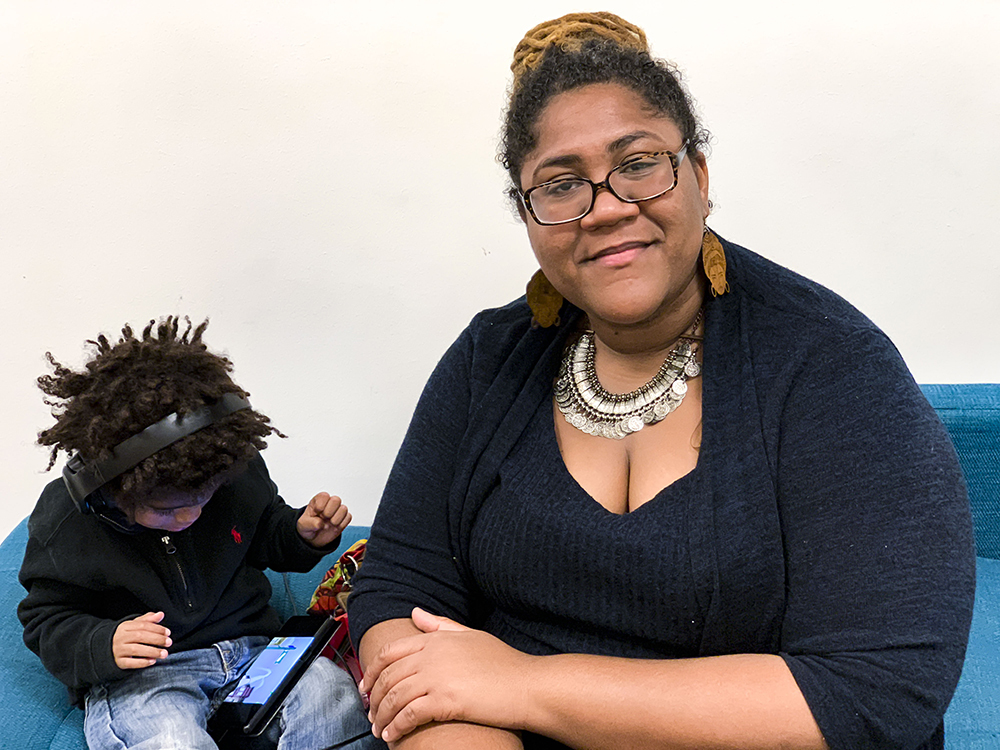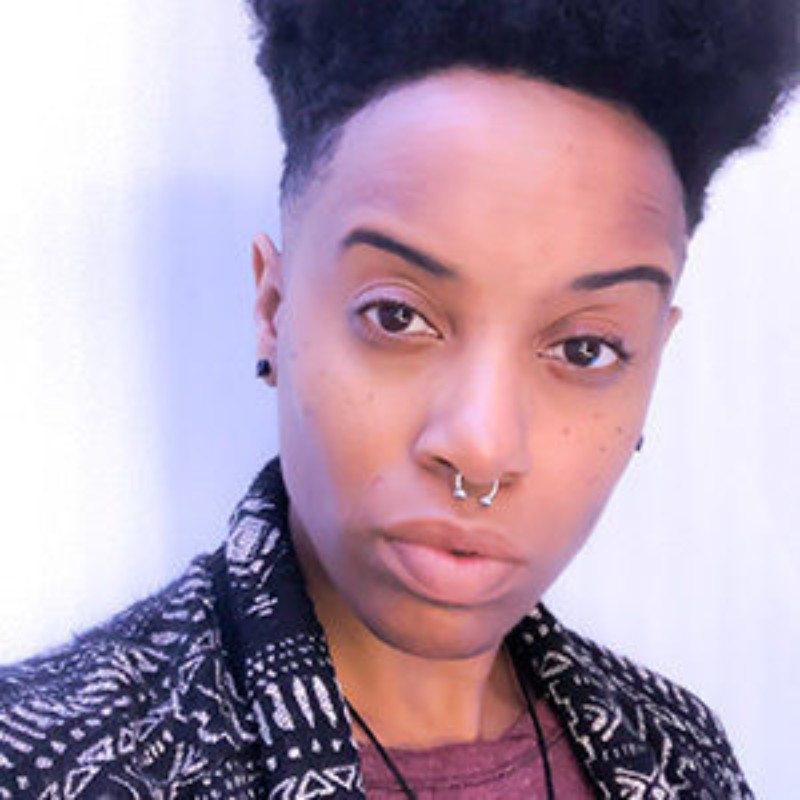
Ana Rodney wears many hats. As a doula, poet, activist, and mom, Rodney is also the founder of MOMCares, a program that provides postpartum support to black mothers in the NICU. Her work, in general, delves into a topic that rarely gets acknowledged: the maternal health and mortality of black women. We talked to Rodney about how her personal experiences were as the catalyst for starting the organization and why it has become her mission to save the lives of black mothers and children.
How did MOMCares come to be?
I’ve been a doula birth worker for 11 years now and, since 2014 when my son, Aiden, was born, I’ve been doing the Neonatal Intensive Care (NICU) work. First, I had to live it and now I’m standing in and holding space for moms in the NICU. Aiden spent four months in the NICU, two months in the Pediatric Intensive Care Unit (PICU) and we only moved to the PICU because we encountered some discrimination and bias during, and right after, the Uprising.
After he came home, I decided that I needed to process what happened when I was in the NICU. During my pregnancy I was fat, black, single, and while in the NICU I decided to stay with my son. Then all of a sudden, I became unemployed and all of that gave rise to its own bias in the care and I ended up feeling unsupported and appearing unsupported while in the NICU.
I started a healing circle, talking to moms about birth, trauma, and self-care and then I was awarded seed money, through Baltimore Corps’ Elevation Awards, and MOMCares expanded. We built out a suite of services to support moms based on my experience and what I have seen in the NICU. For example, providing transportation to and from the hospital. We provide services like that, and we also provide advocacy in the hospital.
Does being an artist inform your work in the medical community?
I hope this doesn’t sound morbid, but there’s artistry in our pain in that everything is connected. As a writer I have always felt like, if you could see the vision of what I was saying, then I then I have done my job. When I go into a board meeting, or when I go into a hospital, or when I talk to a group of people, I am still very much using words to paint that picture.
But now that that picture is around the black maternal health crisis, and mothers dying, and babies being underserved in the black community, I definitely use that to my advantage. By using my way with words, I am able to drive it home to people who don’t have to think about that every day. They don’t have to think about that when they go into a doctor’s appointment or when they’re driving down the street. They don’t have to think about what role their identity plays in their survival.
NICU advocacy is not new but the work you are doing to address the narrative for women of color is what has been missing. What challenges do you face while doing this work?
There are a couple of things that have been difficult, I think on the one hand being so connected to the work and committed to the work, but also having a 4-year-old that doesn’t care about the work can be hard at times. Mom guilt is a bitch and it’s hard to be out here doing the battle cry for moms of black families and then come home and Aiden’s like, “I’m hungry” or “You didn’t play with me enough today.” So that’s difficult.
As far as actual deliverables, it has been two years this month since my sister died. We were pregnant that at the same time, and she had a health issue that was very small, an issue with a gallbladder that started right after she gave birth. It was neglected because she didn’t feel like she had support and she died suddenly. At the same time that she passed away, I was also holding space for a mom that I just helped deliver a little girl and her baby passed away. So, I’m helping a mom go through something that I can’t fathom while dealing with the guilt of not being able to help my sister the way she needed. My sister was a part of my work and it’s difficult to be like, “Of all the people that I wanted to save, that I wanted to help, that I wanted to impact, I did not.”
This work touches everybody in such an acute way, but I signed up for it. I signed up to do that. And it’s one of the reasons why I went through the grief training with Roberta’s House—because I know that the work I am going to be doing will involve some level of grief, and I need to be equipped to handle that.
What advice would you give for future social entrepreneurs and activists?
Get organized. Organize because your passion is important, but you can ignite someone else to want to support you and if you don’t have the capacity to respond to them, it’s like you didn’t say anything. Make sure you are ready to jump when it’s time to jump and trust yourself. There’s a reason why you have approached whatever work it is that you’re doing. There’s a reason why people are listening to you and engaging with you. So you need to trust yourself before you can ask anybody else to have confidence in you.
What’s in the immediate pipeline for Ana Rodney and MOMCares?
I will be releasing Energetic Motherhood in March, a book that tells Aiden’s birth story. The book reveals the process I created to foster a bond with my son after his premature birth and my being deprived of common mother’s rites of passage. We also have a giving campaign to collect donations to continue to bring services to more mothers well into the New Year. I am also currently accepting speaking requests for speaking engagements and cultural competency presentations.
Where do you see yourself in the next 10 years?
I would like to be recognized as a national advocate for black mothers around birth and maternal health. I’d like for MOMCares to be a national and international name in the fight to correct the crisis of maternal health in this country.
